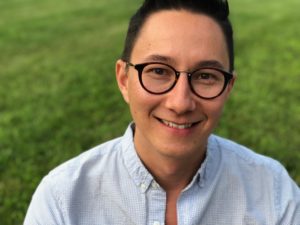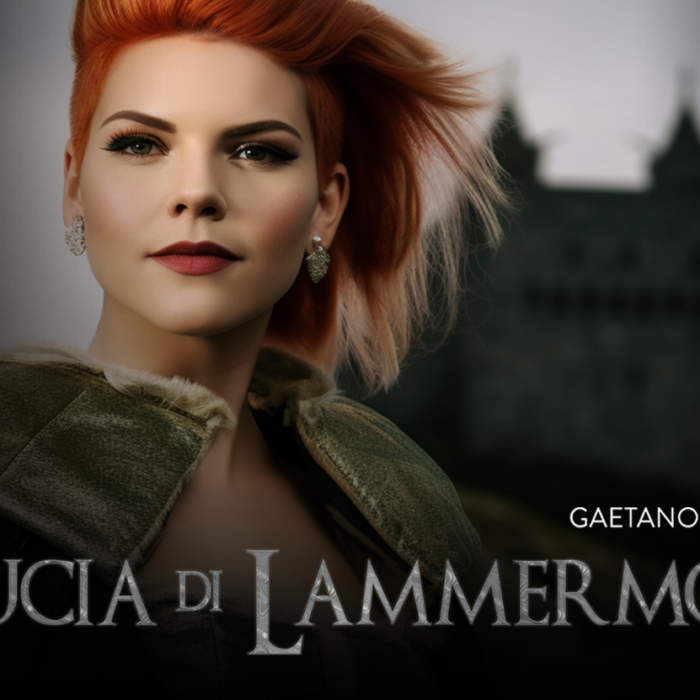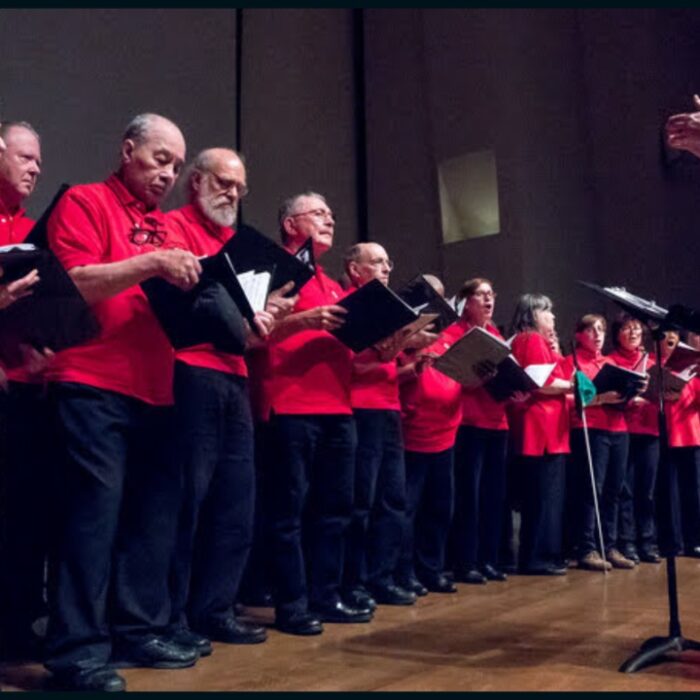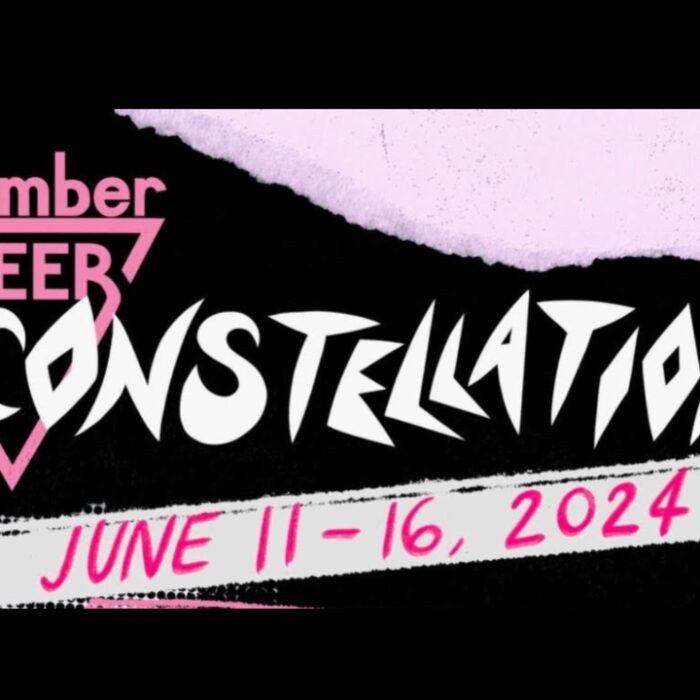
Q & A: Heartbeat Opera’s Ethan Heard on Joining Forces With Opera Lafayette For ‘La Susanna’
By Julieta Gomez de MelloIn the premiere American staging of “La Susanna,” Heartbeat Opera and Opera Lafayette have joined forces for the first time to bring this emotive and rare Baroque work to Washington D.C. and New York audiences.
“La Susanna” tells the eponymous Biblical story of Susanna and the Elders: two men, referred to as “judges” that desire a beautiful married woman; when they spy her bathing in her garden and try to seduce her, she rebuffs their advances, and the men exploit their power in an effort to destroy her.
Stradella composed the opera with a male narrator (Testo), but Heartbeat and Opera Lafayette have cast a female contralto in the role, re-imagining it as a contemporary feminist scholar who grapples with the opera itself—a cultural artifact created by men—as she sings it.
Ethan Heard, Co-Artistic Director and co-founder of Heartbeat Opera, recently talked to Operawire about this co-production of “La Susanna” and explained his unique approach to this timely biblical tale, which re-frames the narrative using a more contemporary, feminist perspective.
OperaWire: Before we begin discussing “La Susanna,” tell us about Heartbeat Opera. I know you attended Yale School of Drama and have a background in theater directing. What made you want to start an opera Company?
Ethan Heard: Louisa Proske, the Co-Artistic Director of Heartbeat and I went to drama school together, and took a class called Opera Practicum, where the directing students got to collaborate with the singing students for about 8 weeks. We’d work on classical pieces from Mozart to Handel; it was a really exciting laboratory space to be in, where we’d look at these masterpieces in a new light.
When Louisa and I moved to New York we wanted to replicate and expand on that experience and find a way to do opera in intimate spaces for younger audiences, and it’s really evolved and sort of taken off from there.
OperaWire: How did this specific partnership with Opera Lafayette come about, and what drew you to this rarely performed baroque piece?
EH: So, Stradella wrote it in 1681 and Ryan Brown, the Artistic Director of Opera Lafayette, which is based in [Washington] D.C., had heard of Heartbeat and was really impressed by our work. He approached me about directing “La Susanna” and potentially doing a co-production between Heartbeat Opera and Opera Lafayette. It seemed like a really exciting idea if we joined forces and could bring our work to [Washington] D.C. for the first time, and also to the Brooklyn Academy of Music [BAM]. So we decided to team up and it has proven to be an amazingly timely piece to be working on.
We programmed “La Susanna” before the Brett Kavanaugh hearings, before the #metoo movement was at its peak, I would say, on social media. So now these past three weeks it’s been a really rewarding and challenging experience because it’s so personal for all of us, men and women in the room, trying to make a piece that was written by men and primarily for men in 1681 into a feminist version. So we really are trying to center the female narratives and give a voice to women in a new way in this piece and kind of look at how an opera that was created by the patriarchy can be seen and heard in a new light.
OperaWire: You pointed out that “La Susanna” was written in 1681, yet the story is one that could arguably have been written today. Do you find that this makes it easier for audiences to connect with the piece?
EH: Well it’s really scary, disturbing, disheartening and maddening that the story persists over and over again. In my director’s note, which we’re printing in the program, I quote from Tarana Burke’s TedTalk. She’s the founder of the #metoo movement, and she reminds us that we’ve just appointed another judge to the Supreme Court who has credible accusations of sexual harassment against him. We’ve done that again…and we have a President with very credible accusations of sexual misconduct against him.
So men in power have been abusing that power, forever, and I think our production hopefully embodies the idea that this is [both] a timeless tale in a disturbing way, and a very timely tale. You know, one of the things that I’m fascinated by is the question of objectification in relation to this story because Susanna has been objectified throughout the ages. She’s been painted, and this incident of sexual assault has been painted hundreds of times. On the one hand it’s showing the story as a kind of moving tale of injustice, but it’s also been an opportunity for male artists in particular to depict a naked woman, in a titillating way, under the guise of being a biblical tale.
OperaWire: You bring up the juxtaposition of the biblical theme of injustice on the one hand and the objectification of the female body on the other. Do you think, because this is a baroque piece, that the music adds an element of eroticism that further intensifies that juxtaposition?
EH: That’s a really interesting question. This is a problematic piece in that way because, on the one hand you revel in Susanna’s joy and her innocent bathing. She think she’s alone, she’s enjoying bathing in the outdoors, like I think we all have, but on the other hand, you know at the same time that the judges are watching her, and our production wants to point out that we [the audience] are watching her, so we are implicated in that experience. We’re complicit.
Then in Act two, Susanna’s in prison, she is singing a gorgeous six or seven-minute aria, but, it’s about her pain, about her fear and the injustice that she’s experiencing so, in that moment too, there’s this question of “does opera make a business out of women’s pain?” I think the answer is yes. Many operatic stories feature women dying or going crazy, and I think we’ve been taught to admire those theatrical and musical moments so it’s a really dicey and tricky thing that the opera is doing and that we’re exploring.
OperaWire: Do you think the #metoo movement has shifted attitudes and perspectives within the opera community?
EH: I feel like our culture is waking up in a big way over the past five years. It’s an exciting time, a time of revolution I would say. I’m a teacher and I see it on university campuses. The next generation of artists are really questioning in radical ways how to more actively include diverse stories, include diverse points of view, make sure women, people of color, Queer people, Trans people and immigrants all have the opportunity to tell stories, be onstage and to be in positions of leadership.
I’m excited. I’m seeing that happen in all kinds of ways and I’m seeing, you know, young people frustrated that it’s taken as long as it has. I think Opera is responding to that movement and other movements gradually, and I know that Heartbeat, my company, is really trying to be at the forefront of that change.
OperaWire: Earlier you mentioned the Brett Kavanaugh Hearings. What do you make of the fact that the three lascivious men who harass Susanna are referred to as “Judges?”
EH: Well, when you read the Book of Daniel in the bible’s story, they were Elders: respected, learned men of power in the community and friends of Susanna’s husband.
So in our production they are indeed dressed as judges in courtly robes. I think when we were conceiving the production design we were really interested in putting and representing the patriarchy visually onstage, so in addition to these two judges, our scenic design also features three male statues who are looking over the garden as well. We have a statute of a military man, a businessman and a church man—a priest. And so, we hope that while this story is focusing on Judges, who pervert the legal system for their benefit, we want this to resonate throughout the other systems of patriarchal power.
OperaWire: This co-production breaks with tradition by casting the narrator, Testo, as woman instead of a man. How do you think this affects the storytelling?
EH: It’s been really transformative, I think. Having a woman sing the words and embody being a narrator really shifts the frame. There’s a different kind of kinship and connection the narrator can have with Susanna and I think it sparks a lot of imagination. Hopefully, the audience will start to wonder “What is the narrator’s point of view? What is the narrator’s agenda here? Has the narrator gone through something similar?” So it’s been a very fruitful decision.
Sara [Couden] who is playing Testo, our scholar as we call her, is wonderful in giving a really charismatic and also mysterious performance, in a good way. It’s a very intriguing, new part of the opera.
OperaWire: Contemporary opera companies like Heartbeat Opera are becoming known for their unique approach to the art form. Namely, they present works in intimate spaces with a minimalist style that focuses on the singer’s bodies and the music. Can you tell us a little bit more about how “La Susanna” will be staged using that approach?
EH: These are fully staged, fully costumed, fully designed [performances]. The sets are our biggest and most expensive sets yet. We have been in venues that have ranged from 80-200 seats, and this year we’re graduating to The Kennedy Center and BAM which are larger theaters.
The Kennedy Center Terrace Theater has about 470 seats and BAM has 260. So we’ve designed a production that can travel and that can work at both venues. I also think the production implicates us and asks us to think about how we are involved.
In terms of the judges, these aren’t just two stray judges; they’re part of our history, our system, our culture, and continue to be. So, [the broader question we are asking is] how can we be part of the dismantling of the patriarchy? How can we actively stand up to injustice? That’s what the student in our production does: she can no longer stand by and witness it. She has to get involved.
OperaWire: Throughout history, there have been numerous artistic depictions of the biblical story of Susanna and the Elders. Were there any in particular you drew inspiration from? Conversely, were there any that you felt were antithetical to your artistic vision and therefore sought to avoid?
EH: You know, my team and I have drawn inspiration from so many sources, but there’s not one in particular that comes to mind. [Conversely,] yes. When we were thinking about Susanna, we certainly thought about how we would depict the prison scene for instance. We knew we didn’t want her in a negligee: you know, as a sad but beautiful ingénue. We wanted to make her three-dimensional and humanize her in our production; really make her into a modern survivor. That really affects the way we interpret the ending because the oratorio ends with a quite triumphant and joyful trio and quartet that the company sings, and the lyrics celebrate Susanna’s fortitude and belief in God, basically saying that evil people will be punished and justice will reign. Our production definitely takes issue with that, because although Susanna is free from prison, she’s not free from the trauma she experienced; she’ll carry that with her and she’s forever changed by it.
OperaWire: In terms of the work’s religious themes, how do you reconcile a more contemporary, feminist approach with the patriarchal idea of a male savior?
EH: That’s a tricky one! I’ve been talking with my collaborators about the religiosity and spirituality of the piece a lot, and it’s a personal question that I struggle with as well. My movement director Emma and I were talking about when you are stripped of your rights, when you are denigrated and searching for hope, it is a really brave and beautiful thing to reach for the divine, to reach for faith. That’s what Susanna does and that’s a really powerful and admirable thing.
I think this opera was composed in a time and a place where the Church was kind of all-powerful and so certainly, in its DNA the piece is about the celebration of God, a Christian-Judeo God for sure, but I think the piece can resonate in other ways, and it does. I think people who come to our production, of all faiths and persuasions, will have a personal encounter with it and can take away their own valuable experience.
OperaWire: What can audiences expect from collaboration with Opera Lafayette?
EH: Opera Lafayette is entering its 25th season, and they’ve made gorgeous baroque music all around the world. We’ve learned so much from our collaboration with them. I think Heartbeat is a young vibrant company that brings a lot of questioning and also irreverence into the mix, so we have I think, as a duo, the experience, the tradition, the reverence, the irreverence, the edginess and the energy. It’s been a really exciting partnership.


